Elle Gordon chats to RTÉ sports presenter Evanne Ní Chuilinn about the changed landscape for women in sport, the FIFA Women's World Cup, not being pigeonholed, and setting a healthy example for her three children.
When I meet RTÉ sports presenter and host of the national broadcaster's Women’s World Cup coverage, Evanne Ni Cullinn, I am surprised by how well we hit it off. Full transparency: I am not a naturally sporty person and as a result, my knowledge needed a refresher ahead of meeting Evanne. I worried my questions might sound clunky or miss the point.
I needn’t have: Evanne’s easy but in-depth knowledge and her passion and for sport means that the conversation flows, as she explains why this is such an exciting time for Irish women’s football.
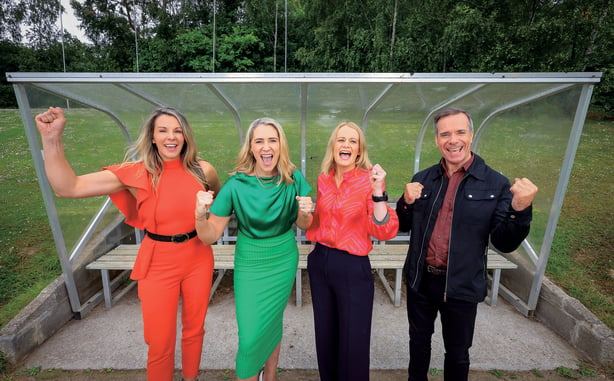
"First of all, this has been such a long journey, not just for the players that are playing now, and will play in Australia, but also for the players who were playing for decades. Nobody knew who they were, how hard they trained, the sacrifices that they made to put on a green jersey. 2017 was a watershed moment for the Irish women’s soccer team. They had to go on strike, to demand better standards. By better standards, I mean basic standards."
Evanne elaborates. "For example, they didn’t have their own tracksuits to wear to competitions; they didn’t have access to strength and conditioning, dietetics, any kind of support structure; or even just coaching standards that were the same as the men had. They really had to stand up for themselves and it was a big risk for the women that were playing then.
"I am thinking about the likes of Ruth Fahy and Stephanie Roche and Emma Byrne; it was towards the end of their careers, but they were still playing and they were putting their final few years in jeopardy, potentially, because they were challenging the powers that be. But they did that, and they were listened to.
"We have equal pay now for the international men and women; we have fantastic standards in the Sport Ireland Institute. The training pitch for the women out there is brilliant. Ireland manager Vera Pauw has said that the facilities they have access to are second to none.
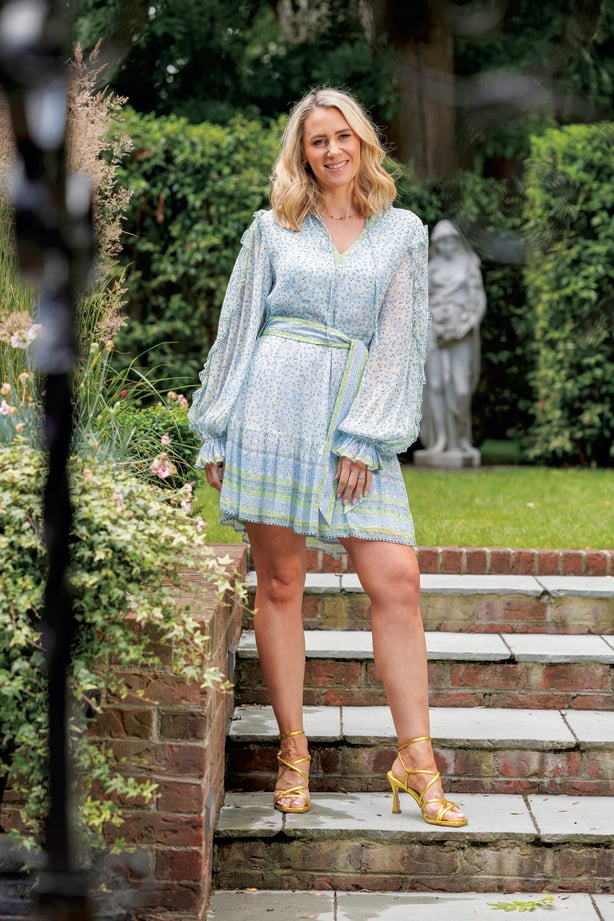
"They are living on the UCD campus now in a camp for the last couple of weeks until they travel to Australia. So, they are living in a professional environment, they are elite sportspeople and they are being treated as such, possibly for the first time, going into a big competition. They have never been at a major championship and they would not be going into the World Cup if the 2017 action had not been taken. That set in motion what is happening today and today would not be possible without yesterday."
Does she think the current squad feel the weight of that legacy they are carrying into the future? "I think there is a strong awareness in the squad that they are carrying this legacy now. They have taken this torch and they are holding on to it for the next set of players that come through… that maybe aren’t even there yet. Players that are playing underage football, or are in development squads with the FAI, they see a bright future now and it is so exciting.
"Not only that we have qualified for our first major championship, but also that as soon as they get home, they will have a few weeks off and then they are into preparation for the Nations League and then they’re going to try for the Euros. So this is another watershed moment.
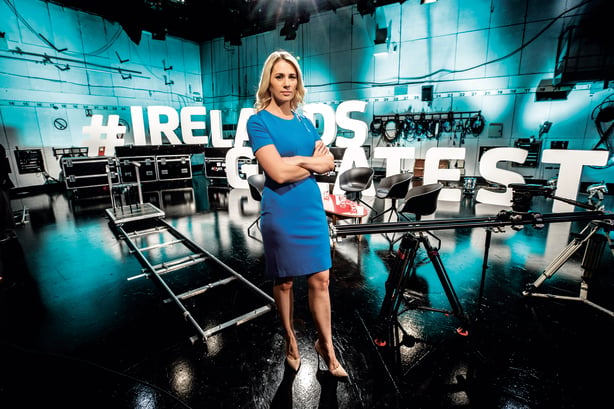
"Since 2017, the women’s team have been playing in Tallaght Stadium and then this September, they are going to play in the Aviva Stadium for the very first time. And then they are going to try to qualify for their second major championship, so there is a narrative here and everything is just getting bigger and better all the time. I think there is an awareness in this squad that they are almost like the keepers of this flame, that is never going to go out, but for now these are the players that are holding that torch."
It’s not just football either; these positive changes are rippling out across other sports where women may have been getting a raw deal. Evanne says, "We are starting to see change across the board in women’s sport. The women’s Gaelic footballers and camogie players are currently playing under protest for the rest of the season. They are looking for similar standards. So, we are seeing that women are standing up for themselves and they are not afraid to challenge the gatekeepers.
"It can be very difficult to do that because you are relying on those people to put the sport on and make the sport a success, but I think what makes a sport a success is people and players. If you don’t have the players, you don’t have sport.
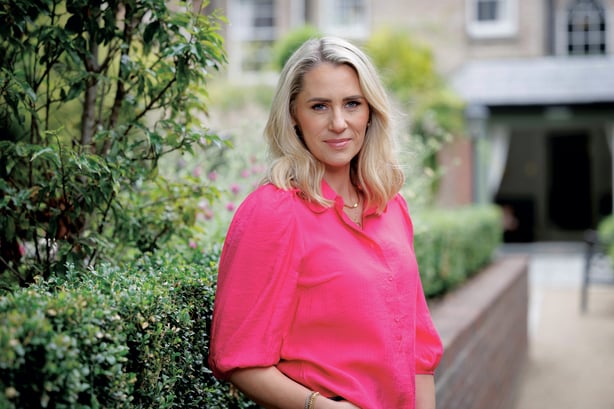
"In fairness to the FAI, they have pulled out all the stops to get these women to the World Cup and it won’t end here. It shouldn’t end there; they will continue to go on and qualify for major championships and there will be a belief in younger players and children now coming through that this is something they can dream about."
Evanne has seen this in her own life and with her own children. She and her husband, Brian Fitzsimons, have three children. Séimí is 11, Peigí is turning eight this month and Teidí is one and a half.
"I have taken my children to all the home games since 2017. I have a little girl who will turn eight a few days after the World Cup starts. She has been going to the Ireland matches since she was two and a half and she has a Katie McCabe jersey with McCabe on the back. If you go to any of those games, you will see hundreds and hundreds of little boys and girls wearing the jerseys with the Irish women’s names on the back.
"For me, I was eight in the summer of Italia 90, and obviously, it was a men’s tournament, but I kind of didn’t even know it would be possible to have a women’s tournament or for us to have a team or for me to aspire to do anything like that. Whereas my kids just assume that it is possible for girls to compete at the highest level.
"I have said this for a long time, I have a daughter, but I think it is more important that I have taken my son to all of the games because I think even in the upper echelons of sport, it is the men you need to convince more than the women."
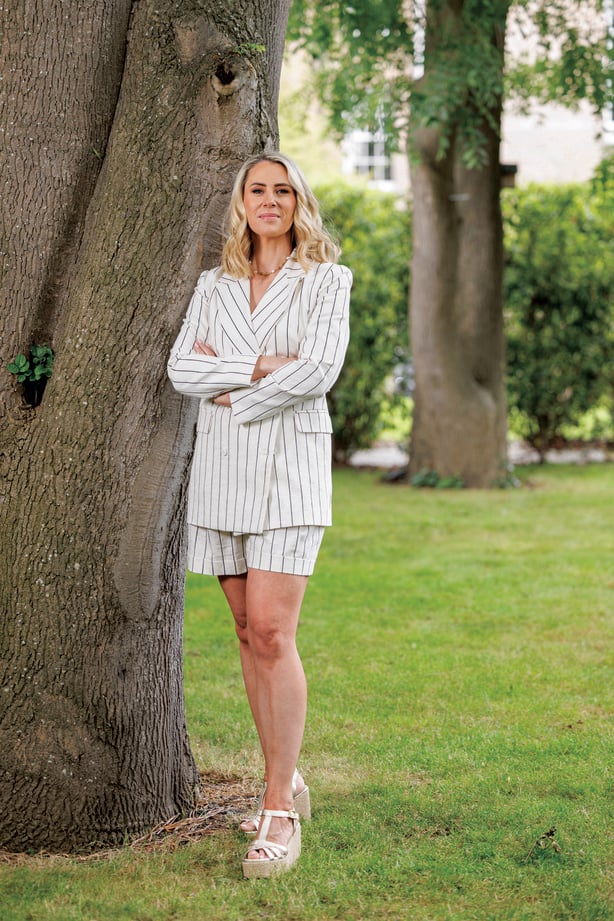
Outside of her work as a sports broadcaster, Evanne has just finished writing a book, completed a second Master’s degree, and signed up for Mothers & Others GAA.
"I don’t like to be pigeonholed. I absolutely love what I do for a living, but I am the type of person who will always look for another challenge and I will always look for something to keep me on my toes. My job does that, and my three children do that, but I still went back a few years ago and did another Master’s part-time. I have just finished writing a book. I like challenging myself and I don’t like being pigeonholed into working in sports broadcasting… there is a whole other side to me, and I try not to forget that.
"Yes, I love what I do; yes, I cannot wait to work on the World Cup, but part of me feels like I am a role model to my children and particularly to my daughter. I think that is important. It is why I have gone back and tried to take up Gaelic football. I am playing on a Mothers & Others team at the kids’ GAA club and I think that’s important to show your kids, myself and my husband, to give a good example about being health conscious and minding yourself."


